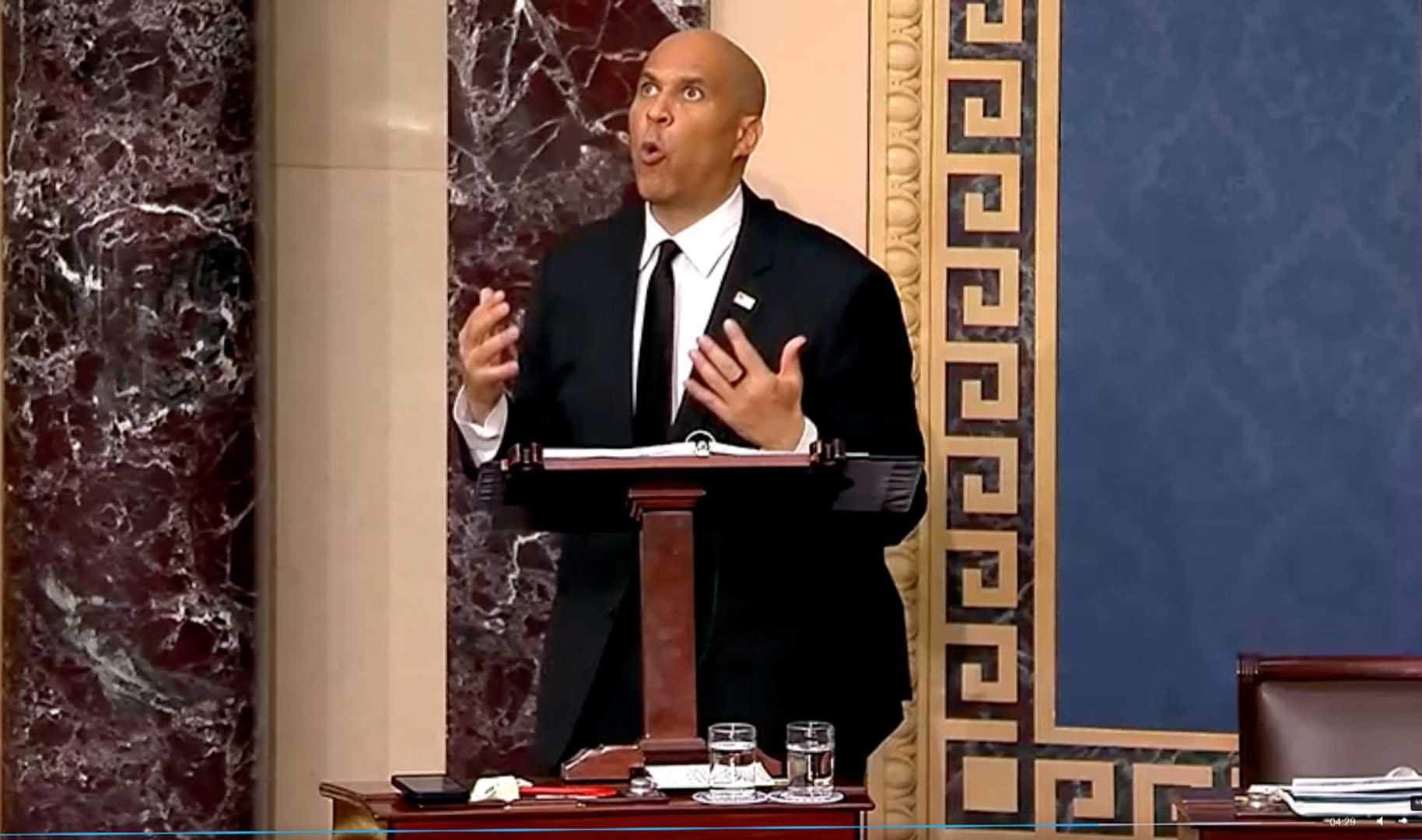Politics
Booker’s Long Speech: A New Strategy for Trump Opponents

WASHINGTON, D.C. — Senator Cory Booker delivered a marathon speech in the U.S. Senate from March 31 to April 1, 2025, which offers a blueprint for Trump opponents navigating the fragmented political landscape. The speech, while momentarily captivating, quickly blended into the busy news cycle.
Booker’s speech spanned various topics, incorporating diverse references from historical contexts to personal anecdotes. He quoted Judge Learned Hand and referred to the civil rights struggle linked to his parents. This multifaceted approach allowed him to fill time while addressing significant issues regarding executive power.
In past research, we noted a trend among long speeches, such as Senator Rand Paul‘s discourse on drone warfare. His speech often included interruptions and catered to different audiences, similar to Thomas Jefferson’s historical oratory style. This pattern was evident during Booker’s presentation as other senators, like Minnesota’s Amy Klobuchar, interjected with their own points.
The media responded with coverage that simplified the complexities of Booker’s address. Reports focused less on the speech’s rich content and more on his endurance and physicality during the lengthy oration. Following the speech, outlets highlighted a surge in Google searches for Booker.
Booker strategically utilized easily shareable phrases to foster online engagement. His slogans, like “Let’s get in good trouble,” aimed to resonate with his political base while also grabbing media attention. His approach acknowledged that to resist effectively, being visible is crucial.
With more than 350 million likes on TikTok by the end of his speech, Booker demonstrated how the digital age can amplify traditional political discourse. Even as attention returned to Trump shortly after, the questions raised during Booker’s speech lingered, providing a moment of reflection amidst the noise of contemporary politics.
This strategy, of leveraging long speeches and media narratives, may well set a new trajectory for those opposing figures like Trump, showing that occupying the public stage can momentarily divert the spotlight and open conversations beyond the usual topics.












